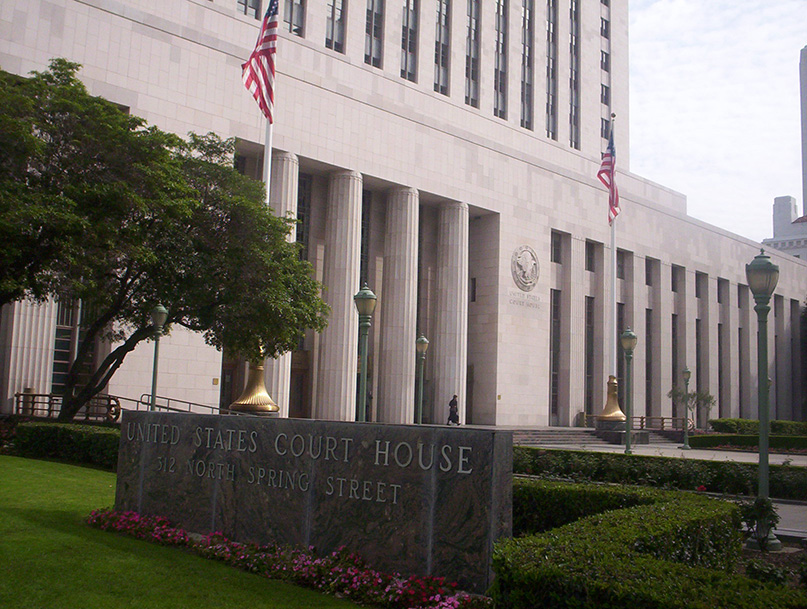Relief Other Than Money
In addition to providing money damages to an injured party, the court can issue orders requiring a party to do something (or more frequently, requiring them not to do something). In an emergency situation, this type of relief is called a temporary restraining order, discussed previously. But, for longer term relief, the court uses injunctions, either preliminary (entered at the beginning of the case) or permanent (entered at the end of a case).
Injunctions exist to provide relief when money damages are inadequate. For example, if a competitor is infringing on your patent, you not only want to recovery for the economic harm you’ve already suffered (including loss of business), you also want to force the competitor to stop illegally using your intellectual property, without having to resort to repeated litigation. To accomplish this, you would ask the court for an injunction that orders the defendant to cease engaging in any conduct that infringes on your property rights. Injunctions are also common in disputes involving real estate or allegations that a defendant’s conduct constitutes a nuisance, as money damages are often inadequate to protect someone’s ability to possess, use, and enjoy their property free of unlawful interference.
Preliminary vs. Permanent – What’s the Difference?
A party can ask for, and a court can issue, a preliminary injunction in order to maintain the status quo while the lawsuit proceeds. For example, if a party is suing to stop a merger between two businesses, it would be hard for the plaintiff to obtain relief, even if successful in the lawsuit, if the merger is allowed to proceed while the lawsuit is pending. Undoing a business merger months or years after the fact is extremely difficult to accomplish, and courts are loathe to try to “unscramble the eggs” after the fact. If the plaintiff can show she will be harmed in a way that money damages cannot adequately compensate (called “irreparable harm”) and the plaintiff can show she is likely to win the case, the court can grant her a preliminary injunction to preserve the status quo until the litigation is complete. The plaintiff has the burden of proving both prongs of the test – both the severity of the harm without the injunction as well as the fact that she appears likely to win the lawsuit at its outset. In order to determine whether the plaintiff can meet this burden and a preliminary injunction is proper, a court may hold an evidentiary hearing – a mini-trial at the beginning of the lawsuit to assess the evidence and arguments for and against the injunction.
Like a temporary restraining order, the proceedings for a preliminary injunction are typically expedited, but the defendant must get adequate notice and an opportunity to respond to the plaintiff’s arguments for the injunction, unlike the TRO. Also, the preliminary injunction can be in place for a substantially longer period of time (typically for the duration of the lawsuit). A TRO typically ends within days or weeks, at most. As with a TRO, a plaintiff may be required to post a bond if the plaintiff loses the case and the defendant was harmed financially by having to comply with the injunction.
The plaintiff may also seek a permanent injunction – an order from the court given after the case is decided on the merits. This permanent injunction would require the defendant to abstain from doing something permanently. For example, a company found liable for polluting a neighboring property might be subject to an injunction prohibiting it from engaging in the polluting conduct. In some instances, the injunction will compel a defendant to do something. This may occur when a defendant is required to return specific property to the plaintiff, to rehire a plaintiff who was wrongfully terminated, or to engage in corrective advertising to correct previous false advertisements.
Conclusion
Injunctions are an important tool, both to prevent a plaintiff from being irreparably harmed while his lawsuit proceeds and to provide relief for harms that money damages cannot adequately compensate. But meritless or overbroad injunctions can be costly and burdensome for defendants. Experienced counsel can help you understand the effects of injunctions, whether it is in your strategic interest to seek an injunction, or if you’ve been sued, how best to defend against a claim for injunctive relief. We have achieved outstanding results for our clients, not just in terms of the claims we’ve defended against and the monetary damages we’ve recovered for our plaintiff clients, but also in litigating preliminary and permanent injunctions to our client’s benefit.
Bring us your toughest case. We’ll get the job done.

